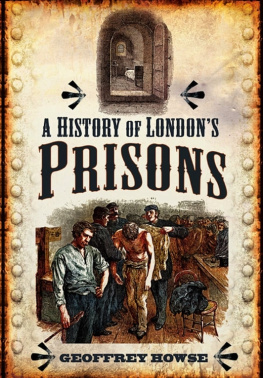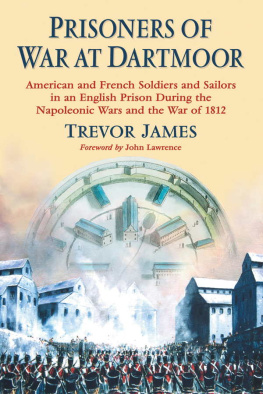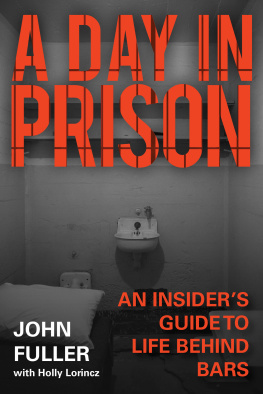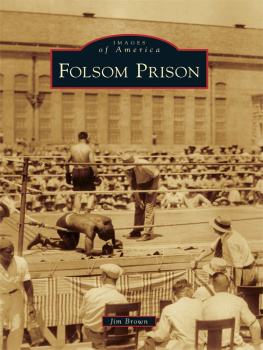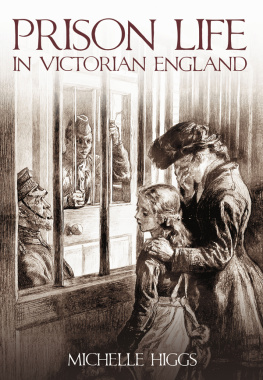Beecher Deason - Eight Years in Southern Prisons
Here you can read online Beecher Deason - Eight Years in Southern Prisons full text of the book (entire story) in english for free. Download pdf and epub, get meaning, cover and reviews about this ebook. year: 2011, publisher: Garrett County Press, genre: Detective and thriller. Description of the work, (preface) as well as reviews are available. Best literature library LitArk.com created for fans of good reading and offers a wide selection of genres:
Romance novel
Science fiction
Adventure
Detective
Science
History
Home and family
Prose
Art
Politics
Computer
Non-fiction
Religion
Business
Children
Humor
Choose a favorite category and find really read worthwhile books. Enjoy immersion in the world of imagination, feel the emotions of the characters or learn something new for yourself, make an fascinating discovery.

- Book:Eight Years in Southern Prisons
- Author:
- Publisher:Garrett County Press
- Genre:
- Year:2011
- Rating:3 / 5
- Favourites:Add to favourites
- Your mark:
- 60
- 1
- 2
- 3
- 4
- 5
Eight Years in Southern Prisons: summary, description and annotation
We offer to read an annotation, description, summary or preface (depends on what the author of the book "Eight Years in Southern Prisons" wrote himself). If you haven't found the necessary information about the book — write in the comments, we will try to find it.
Published in the 1920s, this is a fascinating and engrossing account of the southern prison system as told by a man on the inside. This was a time when a short stint in prison might easily mean a death sentence, as prisoners were subjected to endless labor under the constant threat of violence and death (from bosses and prisoners). This is the rural prison world of Cool Hand Luke but true. Showing an incredible eye for detail, Deason takes us in a short amount of pages through an engrossing world of hard bosses, zany escapes and many attempts at redemption. By giving a true description of prison life and the after effects of prison, I hope to show many young men the utter folly of crime, Deason writes.
Eight Years in Southern Prisons — read online for free the complete book (whole text) full work
Below is the text of the book, divided by pages. System saving the place of the last page read, allows you to conveniently read the book "Eight Years in Southern Prisons" online for free, without having to search again every time where you left off. Put a bookmark, and you can go to the page where you finished reading at any time.
Font size:
Interval:
Bookmark:
Did you ever see the Devil? Have you ever been in Hell? Did you ever have an angel pay a visit to your cell in solitary confinement where mea are seldom fed?
I've seen it all in reality in the land of the living dead.
Where no flowers are spread, no tears are shed.
No tombstones placed at your head.
To mark the place of the fallen race.
In the land of the living dead.
Delivered from my dungeon you'll never more
hear my groans. I'm just a
fallen leaf of a dead forest. A
suicide -- cause unknown.
By giving a true description of prison life and the after effects of prison, I hope to show many young men the utter folly of crime. Anyone not having the experience cannot realize what it means to be a social outcast; to be handicapped in a business way not to mention the loss of precious years of youth that can never be regained. For thirteen years I was a criminal and eight of those years were spent in prison. I started at the age of seventeen and quit when I was thirty-one. During that time I was caught and convicted five different times. The crimes committed were burglary, forgery, theft, and two cases of bootlegging whiskey. I was guilty on every count and pled guilty on every count. By so doing I received the lightest sentences and escaped the habitual criminal law. I believe there is a time in nearly every criminal's life when he is terrified or so full of remorse that he would reform from crime if he were given a pardon. I think that time for me was on my first night in prison. It was nearly night when two other prisoners and myself arrived in the town of Huntsville. As we approached those grim, gray prison walls a feeling of awe came over me. We entered through steel barred gates and were searched thoroughly, given supper and put in our cells. I was assigned to a cell alone and, friends, as I sat there in that cell alone and listened to the grating clang of steel doors and the shuffling, restless movements of doomed men and the many other mysterious night noises of the big prison, I want you to know that my feelings reached the depths of despair. That, I think, was or would have been the psychological time to have pardoned me. Anyway I didn't die or get killed that night, so being a healthy young man with an optimistic view point of life, and a yen for adventure, I was ready to take most anything they could dish out to me the next day. We were sent down to a place they called the dummy (why it was called this I never knew) and put to shoveling coal. A day or two later they took our pictures and fingerprints and asked us our occupations. Being reared at a saw mill, naturally I told them I was a saw mill man. After that I was assigned to the wood cutters squad where each man was supposed to cut a cord a day. I got my cord easily, but it wasn't so easy for some. It was nearing noon when I heard a convict next to me yell John Henry on the turn row. I looked up and saw a trusty coming in a wagon. He had our dinner. He put a bunch of tin plates in two rows about six feet apart on the ground, and put spoons in them. (We were not allowed to have knives or forks as the boys were apt to make dirks out of them). Then he rang the bell and each guard or boss (as we convicts called them) called his squad out, and we left our axes sticking in the tree or stump, and sat down to our dinner. Two or three men were chosen by the head flunky or waiter or the boy that brought our dinner to help dish out the dinner. It was in cans ranging in size from five to twenty gallons, and consisted of beans or peas, bacon, corn bread and sorghum molasses. The guards were all around us and were fed by trusties -- namely, the dog boy, the water boy, and sometimes the head flunky. Of course the guards had better such as coffee, biscuits, pie, etc., which the trusties and flunkies got after the line men and guards were through eating. They always had six or seven blood hounds out in the woods nearby. So if any one ran and got out from under the guns they would have the bloodhounds there ready to put on his trail.
I was in the wood squad about a month when the boys mutinied. Claimed they did not have enough to eat. The sergeant in charge took us all into the walls which was about four miles away and reported it to the warden. He lined us all up and asked the ones that didn't want to be in the buck to step out. Well, I stepped out and the captain told me to go down to Dummy and piddle around the rest of the day. Then he sent the rest of the boys to the Hole or dungeon. It wasn't an hour before I began to wonder if I hadn't made a mistake by not sticking with the bunch, because several of the old timers came to me and told me that I would be branded as a snitch or stool pidgeon if I didn't stick with the bunch. They even threatened to beat up on me then, if I didn't go tell the warden I wanted to buck with the boys. So I did. The warden did everything in his power to change my mind. But you see I had decided that the convicts would deal me more misery than the warden. I know now of course what a fool I was. But after all who knows? I saw several men killed in later years by convicts, for something on the same order. Anyway the warden sent me to the Hole but I am sure he knew what the situation was and in his heart did not hold it against me. I think they whipped the ring leader of the buck or mutiny. Anyway I was not on sol (as we convicts called the hole) very long. They gave me a job helping put up a shingle mill inside the walls. The convict that was in charge of the job soon found out that I knew more about it than he did, so when the guard was not around he would ask about how to build it. Then after we finished the job he told the guard I had tried to push him into the saw, so the guard without asking me anything about it just had me shipped out to the farm. You see I already had a bad record because I was in that Buck. If I had not bucked in the wood squad I more than likely would have been given the job of running the shingle mill. It paid two for one overtime and was also an easy job, compared to those long days on the farm, however, I was working with an old negro named Edd and he told me, White boy, you listen to this old nigger and you will get by easy. I asked him what he meant. He said, You watch me when dat boss man comes ova here and ask me to do sumpin'. Pretty soon the guard did come over and called Edd. Old Edd pretended not to hear him. The guard called him a second time in a louder voice. Old Edd raised up quickly, jerked off his hat and shouted, Oh, good gracious alive, Oh laudy, sah, and looked like he was scared to death. The guard just laughed and said, You better go to work, you old black devil. Then old Edd said, Yassah, cap'n, you know I will, sah. After the guard left, old Edd told me Now see, white boy, you just do like dat, and you will get along all right. Naturally I didn't intend to take old Edd's advice, but as it turned out later I did use some of his tactics to advantage.
At breakfast table one morning they told about twenty of us to get our little personal belongings together and get ready to go to the Ferguson farm. They put chains around our necks, loaded us into some wagons with four mules hitched to them and a convict trusty driver. The mules were harnessed with corn shuck collars and rope lines. There were two guards, one behind each wagon, each guard carried a double barreled shot gun loaded with buck shot, and a pistol, of some sort buckled around him. We paused for lunch about eighteen miles out. It consisted of cold meated catheads or biscuits. Then on to the farm which we reached about 4:30 p.m. At first appearance it looked like a large dairy farm, but on closer inspection it proved to be in a class by itself. The loft of the building was similar to those seen in small churches. The building proper was about 120 feet long, with a hall in the center, but instead of walls in the hall there were bars and we called it the picket. A guard was stationed in the picket constantly. They had two or three implements of torture inside the building. One was similar to a carpenter horse. Just high enough off the floor so one sitting astride of it his feet would not touch the floor. It was called the pole. Another was the chains, or a singletree hung upon a chain or rope. An unruly prisoner would be hung up by his wrists and pulled up until his toes alone touched the floor. I have seen men so stubborn they would hang on the chains until they swooned and became unconscious before they would give up. They did away with the chains and put in their place the Barrel. They would just merely make a prisoner stand on the barrel nearly all night after working all day. And if you dont think that is torture just try it. The bunks were three deep, two rows of them, one on each side of the building with an aisle in the middle, and next to the walls. They had a shower bath in each building. The dining room was along side the building with one long table. They fed out of tin plates and cups. The mattresses on the bunks were mostly corn shucks and believe me they harbored plenty of chinches, which like to have eaten me up. The bunk frames were of wood with no springs. The men who showed us our bunks were called the building tenders. There were two of them and they acted as a kind of police. They kept down fights and loud talking in the building. Theycarried dirk knives and clubs similar to a policemans billy and believe me they would certainly use them if the occasion arose. You see in a prison camp there is always a bunch of rowdies who have to be disciplined by drastic measures. You can see also that the building tenders job was not an easy one, so naturally the authorities had a hard time finding men nervy enough for the job. Also you may realize there were lots of tenders killed. Of course the picket boss backed any play the tenders made, as long as they were fulfilling their duties. Under those conditions naturally the tenders had considerable authority. I have seen them make all the men, except a chosen few, get on their bunks and stay there during a rainy day when we couldnt work. If you wanted to get off of your bunk for anything you had to get permission from the tender. When meal time came the men lined up and matched in and out of the dining room single file. They were always counted in and out by the picket guard. They had regular flunkies to serve the food. Sometimes it was not so clean. But generally it was. At night every one had to go to bed at Rap Down which was about 9:00 p.m. and if you had to get up during the night, you had to get permission from the tender or Picket boss. In the A. M. except Sunday, you had to get up when the bell rang. Gee, I sure used to hate to hear that bell in the morning. The fields were divided into blocks of about 30 acres each. Between each block or cut was a sort of narrow road that we called turn rows. Then there were two or three main turn rows leading from the building or barracks to the field. Each guard was given an average of around fourteen men which was called a squad. Sometimes two or even three guards carried one squad of as many as thirty-six men. There were hoe squads, plow squads, garden squads, wood squads, etc. On each farm there was one general manager or Big Captain and from one to five camps. On each camp there was one captain, one dog sergeant or field sergeant, one steward and as many guards as were needed. Each camp had 100 to 500 convicts in it. The camps were called by number. The general manager of course was over all the little captains. During the week days after breakfast the Picket guard would ring the big bell as a signal for the men to get ready to go to work. Then the little Captain would stand outside and call out the squads. He would say No. 1 Plow, count them as they went out, say to No. 1 Plow twenty-two of them, Boss Jim or Boss John or whatever the guards name was. The guard would answer, Twenty-two is right, Captain. Then No. 2 plow, etc. until all the squads were checked out. Then at night each guard would check his men in to the Picket Boss in like manner. If a guard lost a man he was supposed to lose his job. Every morning when they rang the bell to go to work the lot boys would run the mules in a small catch lot. It was a sight to watch the plow boys rush in among those mules some of which were pretty wild and catch them. On Saturday evening they usually quit 30 minutes early so the men could go by the laundry, get clean clothes, take a bath, and get ready for supper on time. After supper on Saturday as we passed out of the dining room they gave us a plug or cut of chewing tobacco. Sometimes it would be smoking tobacco. For pastime on Sunday we went to church, played dominoes, checkers, and sometimes baseball. The Big Captain on the Ferguson farm about two miles north of Huntsville, was J. P. Barfield, a big dark complexioned man with a coarse voice that trembled when he got mad. He had been over a bunch of negroes for a long time and gee, how he could bawl a man out. The second day we were there he came out to the field and told us new men to gather round. Boys, says he, you dont know me and I dont know you and I want us to get acquainted. He said, Im going to tell yon what I expect of you and what you can expect of me. To all know that I didnt send you here. We nodded. Then he said harshly, You men take your hats off. Everyone took his hat off but me and I didnt like the idea of taking my hat off to any man. He looked at me and I looked off trying to make up my mind what to do. He said, Old Bully, take that hat off before I knock it off. I still acted as if I didnt hear him. Then he ran his horse at me. I grabbed my hat, jumped aside and shouted, Oh good gracious alive, sir. He stopped and asked me why I didnt take my hat off when he first asked me to. I told him I was hard of hearing. He said, Youre a big liar, and he started after me again like he was going to beat me to death. But I had seen a twinkle come into his eye and was not afraid. So I jumped and dodged around shouting, Oh Laudy, sah, good gracious alive, Capn, you know I am -- over and over. He soon became tired of the horse play, stopped his horse and started laughing. And from that day he was my friend. Then he said, Boys, you are all here because you were convicted of a crime against society. You are going to wear my clothes, eat my grub, sleep in my building and you are going to work! Ive got some cotton and you men have got some grass in my cotton and I want it out! You hear me? Another implement of torture is the bat. I have heard it called old Black Dan, the red heifer, the Louisiana fan. It is only used in major punishment. It is about three inches wide and three feet long, one fourth inch thick and is leather with handle attached.
Font size:
Interval:
Bookmark:
Similar books «Eight Years in Southern Prisons»
Look at similar books to Eight Years in Southern Prisons. We have selected literature similar in name and meaning in the hope of providing readers with more options to find new, interesting, not yet read works.
Discussion, reviews of the book Eight Years in Southern Prisons and just readers' own opinions. Leave your comments, write what you think about the work, its meaning or the main characters. Specify what exactly you liked and what you didn't like, and why you think so.



